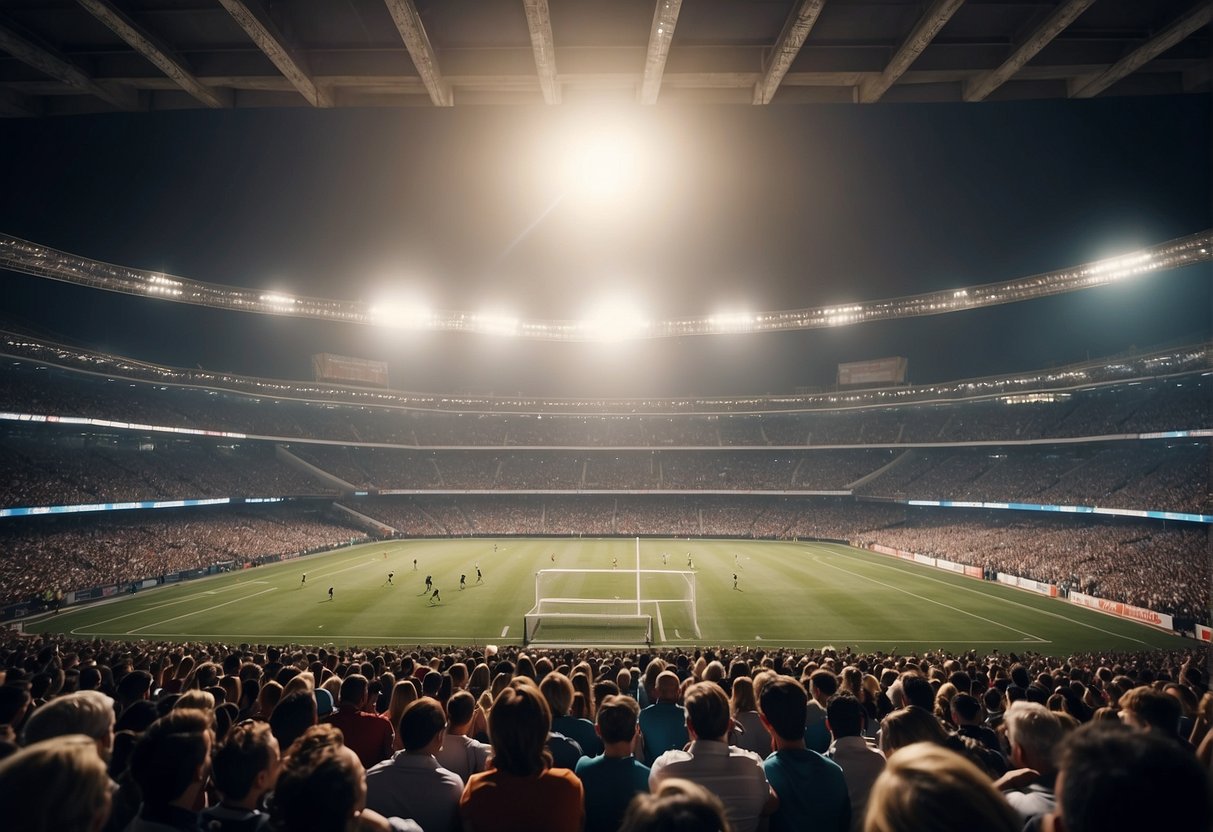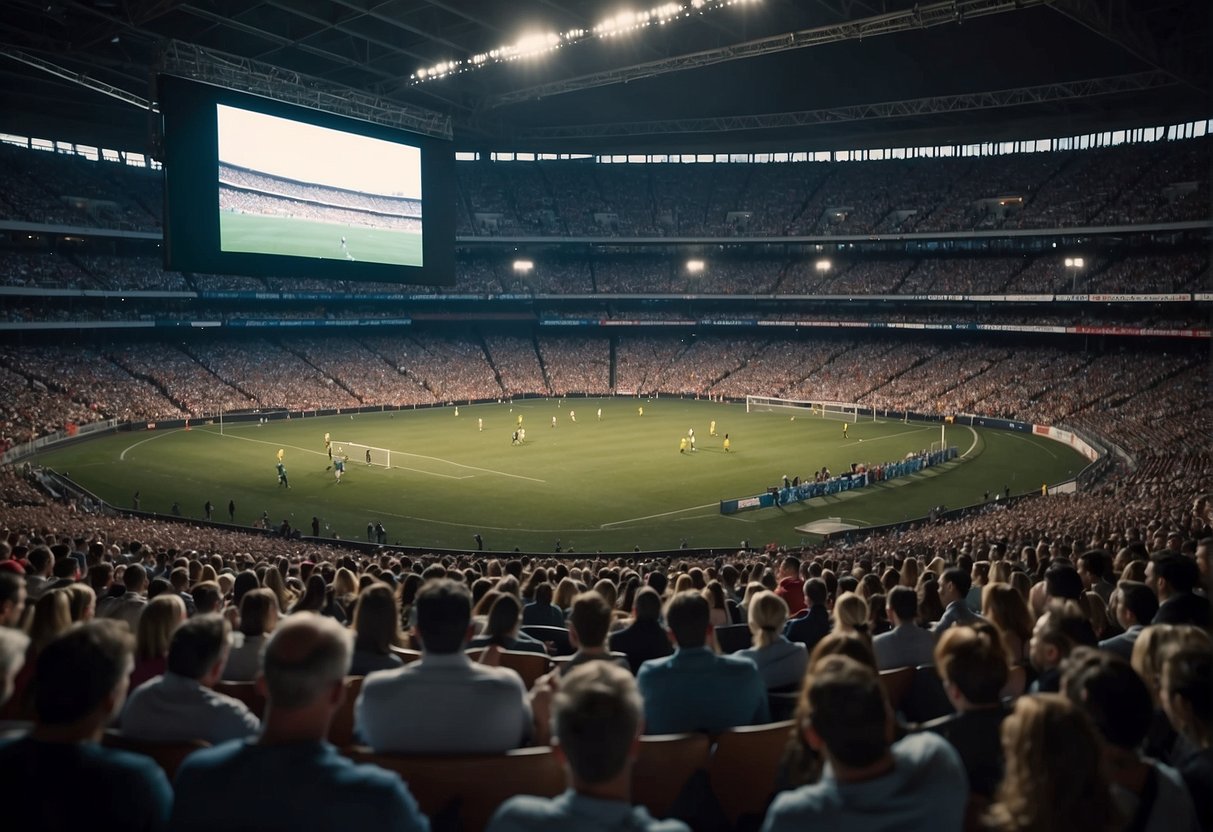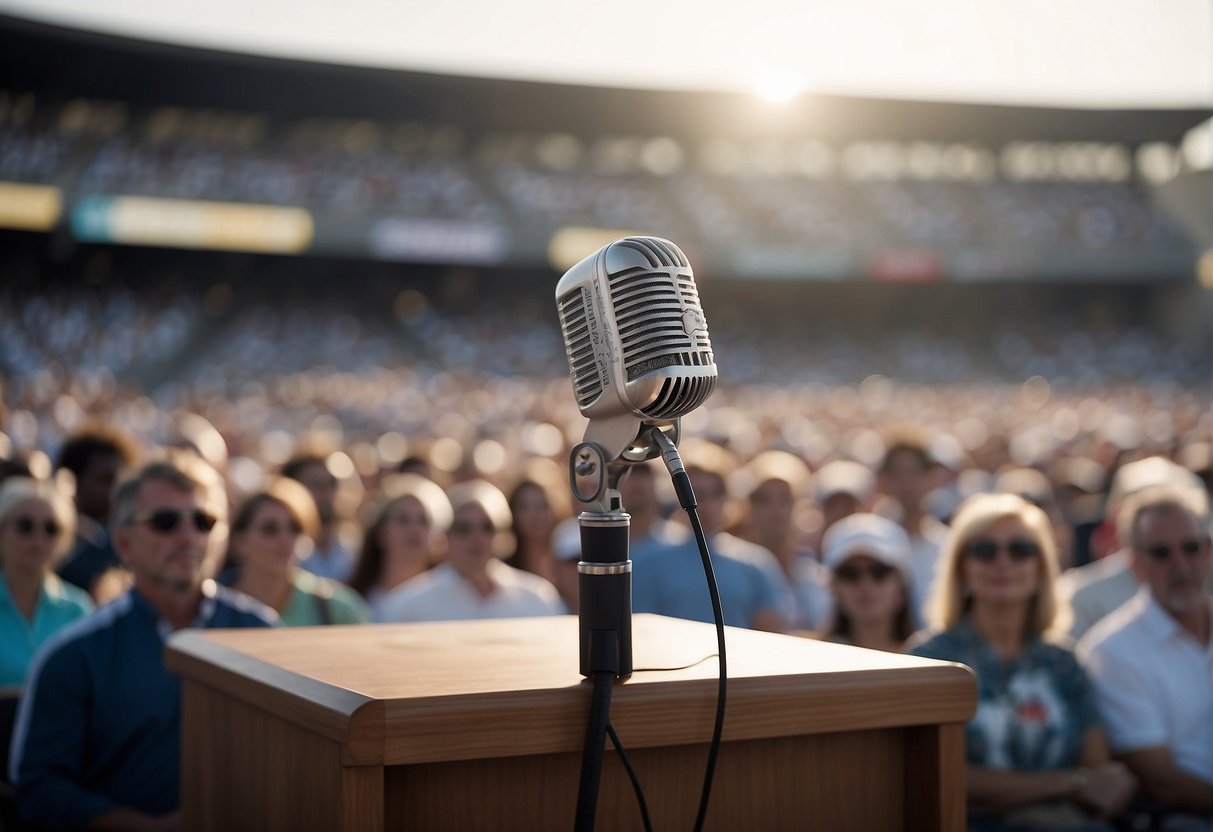The Role of Public Perception in Sports

Public perception plays a crucial role in the sporting world, influencing decisions from player selection to marketing strategies. We explore how spectators, surveys, and cultural factors impact sports at various levels.
Influence of Spectators on Athlete Selection
Athlete selection often hinges on the actions and reactions of spectators. We observe a direct correlation between fan engagement and the visibility of certain athletes. Players who are favorably perceived by the public tend to receive more opportunities, as team selectors and managers prioritize crowd-pleasers to boost ticket sales and fan engagement. Our analysis shows that charismatic or standout players may be preferred over equally talented peers, especially when they command strong public support.
Assessing Public Perception Through Surveys and Studies
Empirical studies and surveys are key tools we use to gauge public perception in sports. By regularly analyzing data from these tools, we gain insights into fans' preferences and opinions. For instance, a survey regarding a player’s popularity can influence a speaker’s selection for a sports event. If the data suggests high public admiration, it can lead to more speaking opportunities for that athlete.
Impact of Cultural and Social Influences on Sports
Culture and social influences are deeply embedded in sports and significantly shape public perception. We recognize that traditions, collective experiences, and societal values influence which sports are favored and how athletes are perceived. For example, in regions where football (soccer) is integral to the culture, players from this sport may dominate the speaker selection for events, as they resonate more with the audience’s cultural background.
Analyzing the Intersection of Sport and Society

As we examine the symbiotic relationship between sport and society, it is essential to consider how various social factors influence the world of sports and, conversely, how sports impact these domains.
The Effect of Race and Occupation in Sports
In sports, race and occupation play pivotal roles in shaping athletes' perceptions and opportunities. Tables highlighting demographic representation in different sports illustrate disparities, emphasizing the need for diversity and equity. For instance, professional coaching positions are frequently scrutinized for racial inequality, where minority coaches often confront glass ceilings despite their qualifications.
- Coaching Positions by Race
- White: 70%
- Black: 20%
- Latino: 5%
- Asian: 3%
- Other: 2%
Likewise, the sports industry is a microcosm reflecting broader occupational trends, wherein racial minorities often grapple with unequal pay and opportunities.
Family Life and Leisure: Balancing Act for Athletes
Family life and leisure are critical components in the lives of athletes; they must negotiate the demands of their profession with their personal lives. The balance is intricate as public scrutiny on the family-friendly image can become a determining factor for speaker selections at events, fostering civic pride through role-model imagery.
- Family Engagement Activities
- Charity events
- Youth sports clinics
- Public endorsements
These activities not only promote the athlete’s public image but also provide crucial leisure and bonding time with families, reflecting a balance that resonates with the audience.
Public Goods and Positive Externalities of Sporting Events
Sporting events deliver significant public goods and positive externalities, influencing their societally perceived value. These events catalyze community engagement, economic boosts, and health awareness. A bulleted list further clarifies these contributions:
- Positive Externalities of Sporting Events:
- Increased community engagement
- Economic stimulation through tourism
- Health and fitness promotion among the populace
The outcomes reinforce civic pride and present an opportunity for cities to showcase their unique cultural identities, furthering the sports-society nexus.
Ethics and Integrity in Sporting Selection

In the realm of sports, the selection of speakers is integral to promoting ethical standards and integrity. We see that addressing key issues like doping and corruption, as well as ensuring fair competition and trust, are critical.
The Battle Against Doping and Corruption
We are well aware that doping and corruption undermine the very foundation of sports. The selection of sports speakers plays a pivotal role in combating these practices.
- Doping: Identifying and publicly endorsing speakers who have a clean track record and who advocate against performance-enhancing drugs is essential.
- Corruption: We prioritize sports figures who have consistently demonstrated transparency and accountability.
The Importance of Fair Competition and Trust
Fair competition is the bedrock of any sporting activity. Trust, on the other hand, is what binds participants and spectators to the sporting world.
- Fair Competition: We honor speakers known for competing with integrity and who have fostered environments that celebrate true skill and effort.
- Trust: By featuring speakers who have earned the respect of their peers and audiences alike for their honesty, we enhance the trust in sports entities.
By upholding these values in our speaker selection, we not only contribute to the positive development of sports but also inspire athletes and audiences to strive for betterment in a fair and honest manner.
The Science Behind Selection
In selecting sports speakers, we harness advanced methodologies to ensure decisions are backed by solid evidence and predictive models.
Role of Logistic Regression Modelling
Logistic Regression Modelling stands as a cornerstone in our selection process. We use this predictive analysis technique to identify the probability of a speaker's success based on previous engagements and a host of quantitative factors. By inputting variables like speaking experience, audience reception, and topic relevance, we generate a model that gives us an empirical basis for our decisions. This model is continually refined as new data becomes available, ensuring our learning process is dynamic and ongoing.
Lessons from Systematic Reviews and Semi-Structured Interviews
We place great importance on the insights gleaned from systematic reviews. These thorough analyses give us a panoramic view of existing research, which includes the impact of speakers on audience retention and satisfaction rates. Through careful synthesis of this literature, we identify patterns and benchmarks for what makes an effective sports speaker.
Furthermore, semi-structured interviews with experts play a pivotal role. We conduct these interviews to tap into the nuanced understanding of seasoned professionals. The conversations are structured to allow for flexibility, which means we can explore unforeseen topics that emerge, thus enriching our selection framework with qualitative data.


